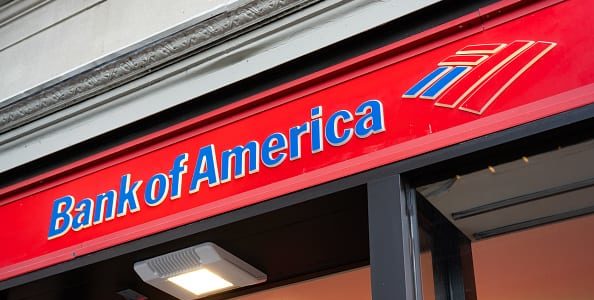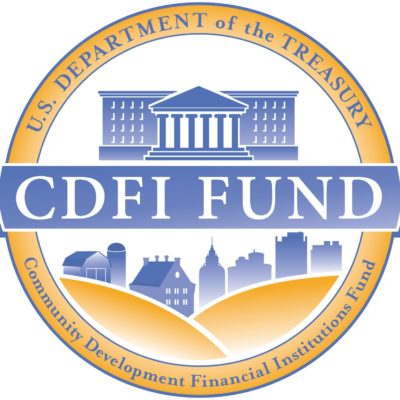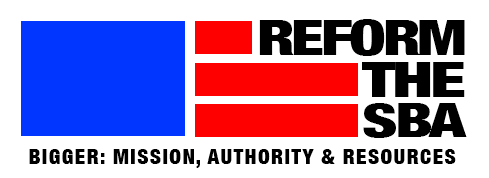
Banks/ Credit Unions
The SBA Office of Advocacy reports that “the number of commercial banks declined from 14,400 to 4,600″ from 1980 through 2019”, a 68% drop due to consolidations and failures. In 2020 over 3300 branches were closed nationally, three times as many branches that were opened. In 2021, nearly 4,000 more branches closed. In 2014, there were 1,132 banking deserts according to the St. Louis Federal Reserve Bank, 734 were in rural areas. The PPP loans, which only benefited about 16% of the nation’s 30 million small businesses, exposed the decades old problem entrepreneurs and micro businesses have had accessing capital through banks/credit unions. These mostly for-profit lenders view entrepreneurs and micro businesses (especially minorities and women) as too risky and unprofitable regardless of how high the SBA loan guarantee might be. This results in capital not going to the very businesses—startups and those under 5 years of age with 4 or fewer employees, that create all the net new jobs in the country.

CDFIs/Microlenders
These private organizations can offer affordable small business loans and other financial products and services to help economically underserved communities. CDFIs receive financial support from the CDFI Fund, which was created in 1994 and is administered by the U.S. Department of the Treasury. There are 1264 certified CDFIs (loan funds-572, banks-312, credit unions-365, venture capital-15).
While CDFIs have been around for 26 years, the nation is still at a four-decade low in new business startups. CDFIs have not successfully addressed our severe small business startup slump. Banks and credit unions that are certified as CDFIs suffer from the same attitude regarding risk-aversion. Loan fund CDFIs, which are mostly identified as mission-driven, also are risk-averse due to sustainability concerns. Unfortunately, not all loan fund CDFIs are doing startup loans. Based on a random sample of CDFI loan funds, about 40% are only doing affordable housing investments. Of the remaining CDFI loan funds that do small business lending, for various reasons only about 216 are providing business startup loans. So approximately only 37% of all CDFI loan funds are making small business startup loans in the entire country.
The SBA does have a Microloan Program that “provides direct loans and grants to eligible non-profit microlenders so that they may provide micro-level loans, and business-based training and technical assistance to start-up, newly established and growing small business concerns.” Like CDFI’s, these microlenders must be concerned about risk because an unpaid loan depletes the loan funds and still must be repaid to the SBA. In FY2020, the 175 SBA microlenders in the country on average made only 33 loans for the year at an average of $14,434 per loan. How many of these loans were for startups is unknown.
Cooperatives
Unquestionably the SBA loan guarantee is a good tool for banks, credit unions, CDFIs and other lenders to minimize the risk of loans they might not otherwise make. However, when it comes to broad-based ownership businesses seeking a loan, criteria for SBA loan guarantees are much harder to satisfy. As a result, the growing potential for these business structures, such as worker, consumer, union cooperatives as well as Employee Stock Ownership Plans (ESOPS), is being held back for lack of access to capital.

Recommendations
-
CDFI Loan Fund Organizations
-
Increase federal funding for loan loss reserves
-
Increase federal funding guarantees
-
Increase federal low/no cost capital to lend.
-
Provide more federal funding for operating costs such as servicing
-
Provide federal funding for mandatory technical assistance, training, and coaching (pre- and post-loan)
-
-
Banks/credit unions
-
Establish a program to encourage lenders to make more SBA-backed loans to small businesses with fewer than 20 employees.
-
-
SBA and/or other federal agencies
-
Establish a direct federal small-business loan program (ex. loans under $20,000) primarily within the SBA for entrepreneurs and micro businesses that includes the requirement of loan recipients receiving the proper small business operational knowledge (ex. bookkeeping, computer skills), technical assistance, training, and coaching (pre- and post-loan) from existing SBA technical assistance programs. This program would set minimum criteria for loans, thus accepting a higher risk of default. However, such extra losses to the federal government will pale in comparison to the economic development benefits in rural and underserved communities and should be considered investments. The loans could be administered by the federal agency directly or assigned to a CDFI. Support the section in the reconciliation bill (Build Back Better Act) that provides for the SBA to make direct loans up to $150,000 to small businesses.
-
-
SBA must embrace shared ownership enterprises and use criteria that is appropriate to ensure equitable participation of cooperatives and ESOPS while reasonably mitigating taxpayer risk, without requiring personal guarantees. Support Senator John Hickenlooper’s Capital for Cooperatives Act (S.1736), introduced in May, 2021. Support section in reconciliation bill (Build Back Better Act) that provides for the SBA to guarantee loans for cooperatives and ESOPS.
AMIBA, ASBC, GGCC, LACCC, LCCDC, LFA, NCBC, SBCC, SCHCC, SCSBCC, TLF, USGCC
AMIBA, ASBC, GGCC, LACCC, LCCDC, LFA, NCBC, SBCC, SCHCC, SCSBCC, TLF, USGCC
AMIBA, ASBC, GGCC, LACCC, LCCDC, LFA, NCBC, SBCC, SCHCC, SCSBCC, TLF, USGCC
AMIBA, ASBC, CACC, GGCB, LACCC, LCCDC, LFA, NCBA, NCBC, SCSBCC, TLF, USGCC
